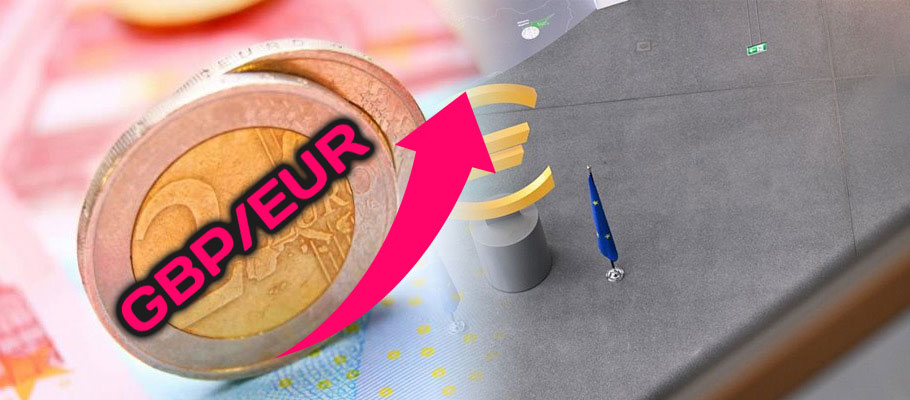
Published: June 12th, 2024
A surge in EU-skeptic political wins and the calling of a snap election in France has put the Euro under broad pressure this week.
Right-wing parties did particularly well in the past weekend's European Parliamentary elections, especially in Italy and France, where anti-immigration parties including Brothers of Italy (FdI) and National Rally (RN) scored notable wins. French President Emmanuel Macron surprised pundits by calling snap elections for the Assemblée Nationale on the result, adding more political uncertainty to the Eurozone.
An analyst note from Milan-based UniCredit said the Euro had been ‘forced into retreat’ after the election result. This has happened before in the aftermath of European Parliament elections, however this time the cause is a rise in 'Euro sceptic and anti-European parties, which have made gains in the major EU economies. If those are reflected in the upcoming elections for the French National Assembly, it could complicate policymaking.’
Sterling has found support amid the continental turmoil, rising against all G10 peers except the US Dollar.
The Pound to Euro rate saw a lift to 1.1823 on Tuesday, extending a rally that began late on Friday with a robust US jobs print that reduced the odds of interest rate cuts by the US Federal Reserve. That in turn reduced the likelihood of UK rate cuts, since traders were betting the Bank of England would fall in line with the Fed in putting off the beginning of another rate-cutting cycle.
It was a different story for the pair in December of last year when analysts were predicting a slowing UK economy would prompt a Spring rate cut by the Bank of England.
A report by Deutsche Bank’s Forex Strategy Unit suggested Sterling could sink against the Euro to levels last seen during the mini crisis set off by former Prime Minister Liz Truss’ and her disastrous budget of September 2022.
The bank’s analysts said a cooling UK economy could prompt the Bank of England to cut interest rates in May, leading to a decline in the Pound’s value.
In a report published mid-December, Deutsche said the expected speed and timing of the transition from hiking to cutting for G10 central banks ‘will be a significant influencer over their respective currencies next year.’
Under that scenario, Sterling would be disadvantaged by BoE policymakers, who Deutsche believed would cut the Bank Rate in May, even before the US Federal Reserve and European Central Bank made similar moves, closer to mid-year 2024.
'The monetary policy tightening undertaken this year is beginning to cascade through the UK economy,’ Deutsche’s report says. ‘Housing prices are beginning to move into correction territory, but could fall further. The reduction in real estate activity hasn’t impacted labour markets yet. When it does the signs of economic slowdown will become clear very quickly.’
The Bank's base case assumed Threadneedle Street would begin cutting rates in the Spring of this year. Washington and Frankfurt were expected to start their easing cycles closer to mid-year.
The analysis also rated the UK’s balance of trade to be in a poor place, with external accounts turning negative again. Based on that, Deutsche forecast a Pound to Euro exchange rate of 1.11 and 1.0870 by mid-year.
The last time the pair’s rate fell to that level was when former Prime Minister Liz Truss delivered an unfunded budget that caused currency investors to panic and mass-liquidate their GBP holdings.
At the start of 2023, Barclays was calling GBP/EUR a buy on predictions of a hawkish reset by Bank of England policymakers.
The bank’s analysts believed a stronger UK economy and progress in negotiations with Brussels over the Northern Ireland protocol pointed to potential gains for Sterling over its continental cousin.
In a research note published on Monday 23rd January, Barclays said ‘trends in domestic inflation, strong growth, an expected hawkish turn by the (BoE) Monetary Policy Committee, plus more constructive tone from negotiations with the EU bode well for the Pound ahead of February’s bank meeting'.
The call came after a stretch of underperformance for GBP that placed it at the bottom of the G10 major currencies list over most of December 2022.
Barclays blamed the BoE for Sterling’s underperformance, due to raising interest rates by 50 basis points in December 2022 while warning of downside economic risks and signaling that it may need to slow the pace of interest rate rises.
Threadneedle Street regularly disappointed forex traders last year by delivering smaller-than-expected rate hikes and consistently gloomy economic forecasts.
Barclays did note that Britain’s economy was turning out to be more resilient than the Bank believed it would in August and November, something that would be adjusted for in the next set of economic forecasts.
'Rising demand and inflation sparked a hawkish shift amongst the MPC’s core membership in December,’ said Barclays. 'That strongly suggests that February’s meeting is being underpriced by traders.’
As 2022 wound down in November, Sterling posted a strong recovery as price action suggested the Pound was being pushed up by global factors.
Analysts, however, said Britain’s domestic outlook ‘remain(ed) challenging’ and GBP’s gains might not be sustainable.
Despite those concerns the Pound was the best-performing major currency in the first week of November 2022, as global markets extended a rally from the previous week and gave the UK currency space to recover some of the losses suffered following last Bank of England meeting.
‘If risk sentiment holds then we should see modest Sterling gains through to year-end,’ wrote Barclays currency analysts in a market commentary.
Global stock markets were up in early November and stayed there at the start of this week Monday as investors bet China was preparing to end its zero-Covid policy. Economists believe such a move could give the faltering global economy a much-needed kick and provide risk-sensitive currencies like GBP a welcome nudge.